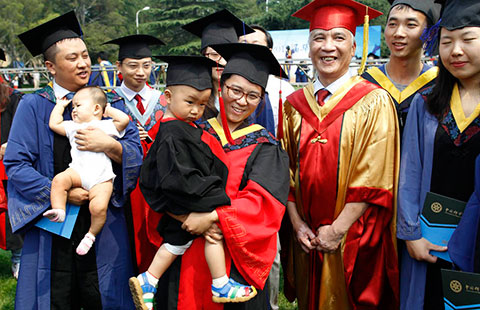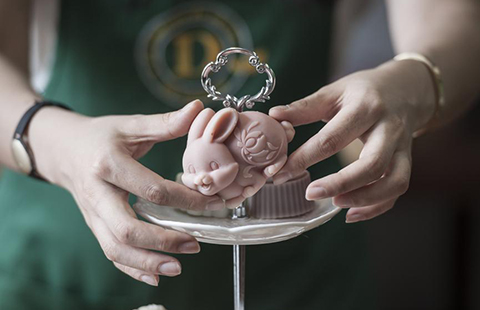China welcomes US-Cuba ties, calls to lift embargo
Updated: 2015-07-06 04:42
By CHEN WEIHUA in Washington(China Daily Latin America)
|
||||||||
The JetBlue plane that took off on July 3 from JFK Airport in New York for the Jose Marti International Airport in Havana was the first direct flight from the Big Apple to Cuba.
It happened just two days after US President Barack Obama officially announced the re-establishment of diplomatic ties between the United States and Cuba and the scheduled opening of embassies in each other's capitals on July 20.
In May, Cuba was removed by the US State Department from its list of state sponsors of terrorism, which the island nation had been on since 1982.
Yet the US embargo on Cuba imposed in the 1960s, called by some Cubans a blockade, is still in place and does not seem like it will go away despite Obama's appeals to the Congress.
The embargo has been widely regarded as the most ridiculous US policy and has been firmly opposed by virtually all other nations, as evidenced in the annual condemnation of the US embargo on Cuba at the United Nations General Assembly every fall.
JetBlue's direct charter flight and Obama's announcement still do not mean Americans can travel to Cuba freely. With the embargo, Americans are still forbidden from traveling to Cuba as tourists, and they can only go if they are visiting relatives, working in academic exchanges or as journalists.
Even those allowed to travel there are restricted in bringing back Cuban cigars and rum to the US. The mojito, a rum-based Cuban cocktail, is among the most popular drinks in bars across the US.
In making his formal announcement of diplomatic ties with Cuba on July 1, Obama admitted that the US policy has failed. "For the United States, that meant clinging to a policy that was not working. Instead of supporting democracy and opportunity for the Cuban people, our efforts to isolate Cuba despite good intentions increasingly had the opposite effect — cementing the status quo and isolating the United States from our neighbors in this hemisphere," Obama said.
"The progress that we mark today is yet another demonstration that we don't have to be imprisoned by the past. When something isn't working, we can — and will — change," said Obama, who first announced efforts to normalize relations with Cuba last December.
While the Cuban government has much to improve in its policy to open up and develop its economy, there is no doubt that the US embargo in the past half century has inflicted huge sufferings on ordinary Cuban people.
And Obama, as a US leader, finally has the courage to admit that. "It's long past time for us to realize that this approach doesn't work. It hasn't worked for 50 years. It shuts America out of Cuba's future, and it only makes life worse for the Cuban people," he said on July 1.
Such ridiculous US policy also has been felt in Washington, where the Cuban Interests Section had been operating for years without a bank account largely due to the US policy; it was only restored in May. Cuban diplomats working in the missions are restricted to a certain radius in a country that calls itself the land of freedom.
Obama's announcement on July 1 and his engagement policy have been welcomed in China. Foreign Ministry spokeswoman Hua Chunying said that the important stride toward the normalization of bilateral relations meets the common interests of the two countries and the two peoples, facilitates stability and development of the Americas, and answers an international call that has existed for a long time.
"We are happy about this good move, and welcome and support it," she told a daily briefing on July 2.
Hua said China hopes that the US and Cuba can meet each other halfway and further consolidate the momentum of improving bilateral relations by continuing with dialogue and consultation.
"We hope the US side can soon and completely lift the bans and sanctions on Cuba, so that the two countries are able to develop normal state-to-state relations following the purposes of the UN charter and the basic norms governing international relations," she said.
Contact the writer at chenweihua@chinadailyusa.com
- Injured ROK tourists in intensive care
- 36 dead, 26 missing after banca capsized in C. Philippines
- Thai navy plans to buy three Chinese subs
- Mass casualties in Indonesian military plane crash
- Japan's LDP lawmaker denounces Abe's security policies
- More than 100 feared dead in Indonesian military plane crash

 People take part in Independence Day parade in Washington
People take part in Independence Day parade in Washington
 Unusual heat wave sweeps across Europe
Unusual heat wave sweeps across Europe
 Class of 2015 celebrates in Beijing
Class of 2015 celebrates in Beijing
 Heavy rainfall causes landslide in NW China
Heavy rainfall causes landslide in NW China
 Across America over the week (June 26-July 2)
Across America over the week (June 26-July 2)
 Solar-powered plane breaks solo flight record
Solar-powered plane breaks solo flight record
 A soap maker's fragrant life
A soap maker's fragrant life
 Ten photos you don't wanna miss - July 3
Ten photos you don't wanna miss - July 3
Most Viewed
Editor's Picks

|

|

|

|

|

|
Today's Top News
US urged to 'correctly perceive China's strategic intentions'
China brokers pledge 120b yuan to stabilize stock market
For PetroChina, move to Houston pays off
China-France ties 'benefit all'
Concern over US military strategy
Will Alibaba, Amazon clash?
China-France ties 'benefit all'
Veteran diplomat in Havana shortlisted for ambassador
US Weekly

|

|







